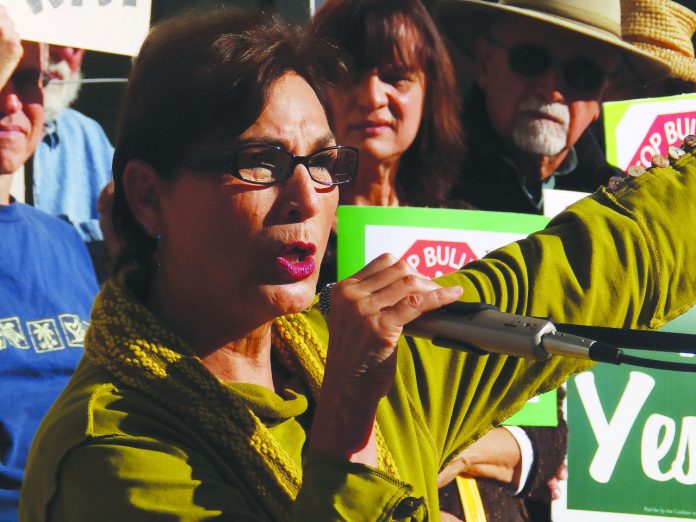
Citadel Exploration has dropped its lawsuit against the county over the Measure J lawsuit, according to the Center for Biological Diversity.
Citadel had been pursuing the use of cyclic steaming in up to 1,000 oil wells in the Bitterwater area of San Benito County. In November, voters approved Measure J, which put a stop to the project. The company followed by filing a $1.2 billion claim, a precursor to a lawsuit, and then a lawsuit alleging state law superseded prohibitions in Measure J.
Citadel in its latest court filing argued that state law superseded Measure J’s prohibition against steam injections— the new law also bars fracking and other extraction methods—and requested a judgement on whether the initiative, approved by 58.9 percent of voters on the November ballot, should stand.
The lawsuit contended that “regulation of down-hole operations is exclusively a State function and that the defendant lacks the power and authority to regulate down-hole operations.” The legal filing went on to claim the measure conflicts with state law.
In filing the lawsuit against the county, Citadel pointed out that supervisors voted 5-0 in June 2013 to approve steam-injection test wells at the Project Indian site.
The following is the announcement from the Center for Biological Diversity:
The only oil company to sue San Benito County over a local ban on fracking and other high-intensity petroleum operations announced today it has dropped its lawsuit, leaving the voter-approved ordinance in place.
Citadel Exploration’s decision to dismiss its own case means that local fracking bans in California face no remaining active legal challenges, despite threats from the oil industry.
Last November, San Benito County residents voted overwhelmingly to pass Measure J, a local land-use ordinance that prohibits fracking, cyclic steam injection and other high-intensity petroleum operations. Measure J, which passed despite the oil industry spending more than $2 million on attack ads and other campaigning, also prohibits land use for any oil and gas development in residential zones.
Citadel Exploration filed suit against the county last month, alleging that Measure J was preempted by state law. No other legal challenges have been filed against Measure J.
San Benito Rising, a community organization that initiated Measure J, was prepared to defend the initiative its members helped pass.
“This is a great victory for our community,” said Mary Hsia-Coron, who helped spearhead the Measure J campaign. “Our volunteers worked hard to educate voters about how fracking, cyclic steam and acidizing threaten our water, our health and our economic future. Other communities should take heart that they have the power to protect what they love. They can stand up to the oil industry and say ‘no’ to these dangerous practices.”
“During this long drought, Measure J has become more important than ever,” said Paul Hain, a local farmer. “We’re grateful to our attorneys for drafting a solid initiative that can stand up to legal challenges.”
Land use and election law attorneys at Shute, Mihaly & Weinberger carefully drafted Measure J to ensure its validity.
“Local governments can prohibit high-intensity oil and gas operations under their fundamental land use authority,” said Heather Minner, an attorney with the firm. “Measure J sailed onto the ballot without any pre-election challenges and it’s not surprising that Citadel dropped its post-election suit like a hot potato.”
“So much for the oil industry’s empty threats against communities that fight fracking pollution,” said Hollin Kretzmann, an attorney for the Center for Biological Diversity, which was also prepared to defend the ordinance in court. “With frivolous lawsuits off the table, more California communities will use their authority to ban fracking and protect their water, air, and health.”
Look back for more.









